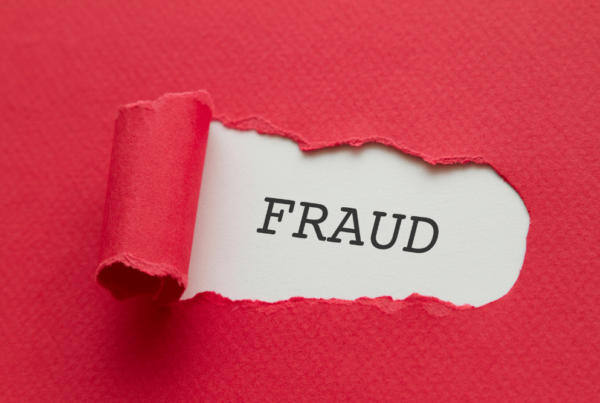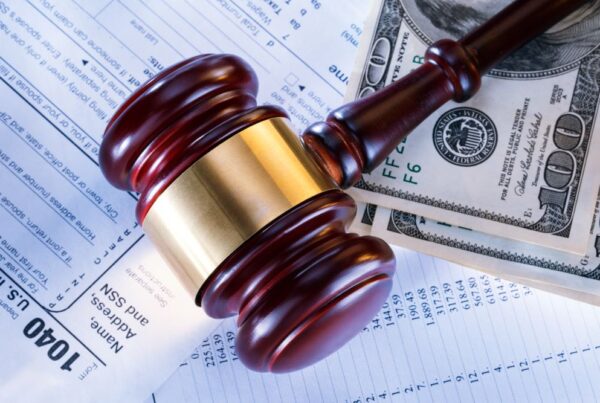WHITE COLLAR CRIMES
Federal Loan & Bank Fraud Defense Attorneys
18 USC 1344
What Defines Federal Bank Fraud?
Advances in the fields of data science and information technology have allowed banks and other financial institutions to enhance their protections against bank & loan fraud. The U.S. Sentencing Commission data shows these advances coincide with a steady decrease in the number of offenders charged with bank or loan fraud and related offenses over the last five fiscal years across the country. Despite this national trend, bank fraud and related offenses have been the second or third most frequently charged type of federal crime in Illinois over the same period.
Bank fraud is classified under one of two general categories – external or internal.
External bank fraud involves an offender that has no association with the target bank or financial institution. Whereas an internal bank fraud case involves a bank employee exploiting their knowledge of bank procedures and access to client accounts for fraud. A variety of fraudulent actions or schemes can be considered bank fraud, including check-kiting, check and loan document forgery, and non-disclosure on credit and loan applications, to name just a few. For these and other such actions, alleged offenders are charged with bank fraud under 18 U.S.C. §1344(1) and (2).
Azhari LLC handles federal bank fraud cases across the United States. Contact our federal bank defense lawyer today.
What types of banks and financial institutions are covered under §1344?
The Fraud Enforcement and Recovery Act of 2009 (FERA) (Pub. L. 111-21) significantly broadened the definition of “financial institution” to include those holding assets, such as property, that may not be insured by the FDIC. Under this law, financial institutions now include banks, bank branches, credit unions, small business investment companies, and mortgage loan or lending businesses.
FERA not only expanded the definition of a financial institution, but it also increased funding for the investigation and prosecution of bank and loan fraud.
Through FERA, tens of millions of dollars are appropriated each year to the Federal Bureau of Investigation, the United States Attorney’s Office, the Department of Justice, and other federal departments and agencies toward this end.
What type of conduct does §1344 prohibit?
- 1344(1) prohibits schemes that target a bank, investment company, or financial institution whose deposits are insured by the Federal Deposit Insurance Corporation (FDIC). This section criminalizes both the successful carrying out of such a scheme, as well as the mere attempt. To convict an alleged offender under §1344(1), a federal prosecutor must prove, beyond a reasonable doubt, that the alleged offender acted knowingly and with the intent to defraud the bank. Further, the Government must show that the scheme involved some false pretense or fraudulent representation.
In 2014, the U.S. Supreme Court held that the Government does not need to prove that a defendant intended to defraud the bank that holds the money or property that is the subject of a scheme under §1344 (Loughrin v. United States). For this reason, §1344 was subsequently split into two sections. §1344(2) prohibits the same conduct as §1344(1), save one element—it does not require proof that a defendant intended to defraud the bank itself.
Under either section, a “scheme” encompasses a relatively broad range of conduct. Some conduct is more complex, involving forged or falsified documents and fraudulent transactions, such as loan fraud, while some conduct is comparatively simple and may not include false statements or fraudulent misrepresentations at all—check kiting is an example of this. Check kiting is a way for an individual to create a form of unauthorized credit. To do this, individuals write a check from one bank account for an amount greater than the balance in the account and then write a second check from another bank, also for an amount greater than the second account’s balance, to seemingly cover the amount of the first check. In 1992, the Seventh Circuit held that check kiting schemes were covered under §1344(1), even though this type of scheme might not involve a specific false statement or misrepresentation of fact (United States v. Doherty).
Bank Fraud Penalties Following a Conviction
Convictions under §1344(1) or (2) carry steep penalties which can include fines of up to $1,000,000, imprisonment for up to 30 years, or both. A defendant’s sentence could be enhanced, or increased if they organized or led other participants in the scheme. Contrastingly, defendants who played a relatively minor role in a scheme may have their sentence reduced. If the defendant of the bank fraud defense lawyer is an employee of the financial institution, abused a position of trust, or utilized special skills to carry out the scheme, their sentence may be increased. Sentence enhancements may also be given to offenders who use, or attempt to use, a minor to carry out the scheme.
Recent Loan & Bank Fraud Prosecution in Illinois
In April of 2019, four Chicago area business partners, including a conspiring loan officer, were sentenced to prison terms ranging from one to over five years and ordered to pay over $14 million in restitution for submitting false loan application documents to obtain bank loans guaranteed by the Small Business Association (SBA). Through their scheme, the defendants secured over $40 million in SBA loans over the course of four years.
In September 2019, a Chicago resident was sentenced to serve 10 years in federal prison for defrauding a credit union by depositing forged checks, then withdrawing the funds in cash. During legal sentencing, the Government and federal prosecutor requested an enhanced case sentence, beyond the range otherwise warranted by sentencing guidelines because of the defendant’s extensive criminal history and his use of sophisticated methods in carrying out the scheme. The U.S. District Court granted the request, dubbing the defendant a “serial fraudster” for his history of convictions for bank fraud, deceptive practices, and other related offenses.
Contact Experienced Federal Bank Fraud Attorneys Today
In spite of increased funding allocated to support the investigation and prosecution of bank & loan fraud offenders and the increasingly sophisticated security measures employed by banks and other financial institutions to prevent such occurrences, bank fraud crime remains one of the most commonly charged federal & financial crimes in Illinois.
Contact us if you’re in need of an experienced federal criminal defense lawyer who will help with your bank fraud charges.
White Collar Crimes
Recent Posts






